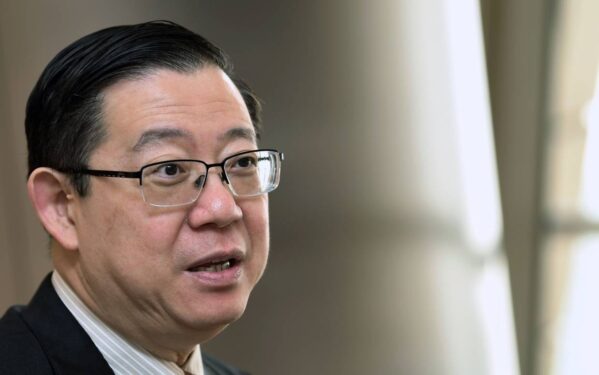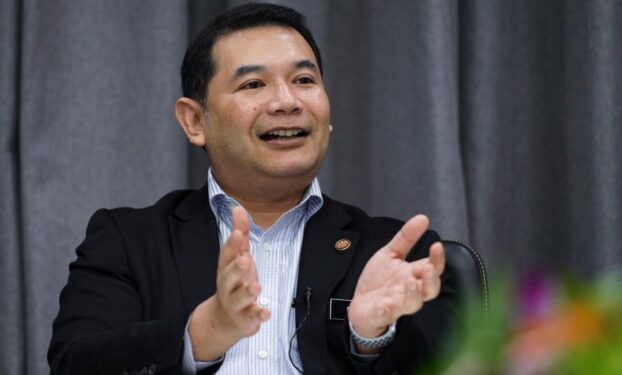VERNACULAR schools in the country, such as Mandarin and Tamil schools, are part and parcel of the educational system. This was something inherited from the colonial and immediate post-colonial periods.
The recent constitutional challenge to the existence of the vernacular schools fizzled out. The court decided that the vernacular schools are as constitutional as the national schools.
However, this judicial decision has not persuaded the detractors from saying that non-Malays who send their children to vernacular schools are not nationalistic enough.
A former prime minister went to the extreme extent of calling the non-Malays “foreigners”. It is argued that the non-Malays, by sending their children to vernacular schools, want to maintain and perpetuate their own ethnic and provincial identities.
Not all non-Malays send their children to vernacular schools, the majority maybe. There is a higher percentage of Chinese sending their children to Mandarin schools than Indians.
Only in recent years has the enrolment of students in Tamil schools noticeably increased. This has nothing to do with the fact that they are less nationalistic but is related to the slide in the educational quality of national schools. The performance of Chinese and Tamil schools is on par with that of national schools.
Perhaps it is about time that the Education Ministry looks into the problem of the deterioration of the quality of education in national schools.
Apart from the quality of education, the phenomenon of ethnic discrimination against non-Malays is pretty apparent in national schools. Lack of promotion prospects for non-Malay teachers and other factors contribute to making the vernacular schools more attractive to non-Malays.
Still, a sizeable number of non-Malays are sending their children to national schools. It is not that the non-Malays have rejected the national schools. In fact, the vernacular schools and national schools co-exist within the ambit of the national educational system.
Non-Malay children spend six years of their primary education in the vernacular schools before their parents send them to secondary level in national schools. Vernacular schools are termed national-type primary schools.
As I have said before, more than 20% of the children in Mandarin vernacular schools are Malay. Why do Malay parents send their children to Mandarin schools if these schools are not conducive to national integration.
Are Malay parents wrongly influenced by the anti-national propaganda of the non-Malays?
It is the quality of education in the Mandarin schools that determines why a portion of Malay parents send their children there.
Is there anything wrong with this?
The proponents of a single system of education assume that the curriculum of the vernacular schools is different from the national schools. This could be the reason why the non-Malays have less nationalistic sentiments.
The curriculum of the vernacular schools is set and approved by the Education Ministry. There is no independent course of action for vernacular schools to pursue. The only difference between vernacular schools and national schools is the medium of instruction.
In the vernacular schools, both Mandarin and Tamil, only 60 to 70% of the subjects are taught in their respective mother tongues.
In the national schools, the medium of instruction is Malay.
In national schools, there is provision for the teaching of the pupils own language (POL), Mandarin and Tamil if there are more than seven students. But such a provision was never taken seriously enough to be implemented.
In fact, difficulties have been placed in the implementation of the POL classes, so much so that non-Malay children have lost interest in the pursuit of these mother-tongue education classes.
If there had been systematic political will in the implementation of the POL policy, even making it compulsory for non-Malay students, the national education system could have been much more accommodating.
Such a measure could have addressed the current bifurcation of the two systems of education to some extent.
Anyway, there is no scientific basis to say that non-Malays who have gone to vernacular schools are less nationalistic than those who attended the national schools. Vernacular schools are an integral aspect of the national educational system.
The argument that only with the abolition of the vernacular schools can a non-Malay aspire to be the prime minister of Malaysia is nothing but a narrow-minded postulation that borders on racism.
Due to the predominance of extreme racial and religious politics, there has been no serious attempt to rationally and logically address and resolve the myriad problems of the educational system.
The Malaysian political system is like a large sponge of racial and religious extremism, any attempt to go beyond it gets invariably absorbed and rendered ineffective. — March 12, 2023
Prof Ramasamy Palanisamy is the state assemblyperson for Perai. He is also deputy chief minister II of Penang.
The views expressed are solely of the author and do not necessarily reflect those of Focus Malaysia.
Main photo credit: Borneo Post Online










